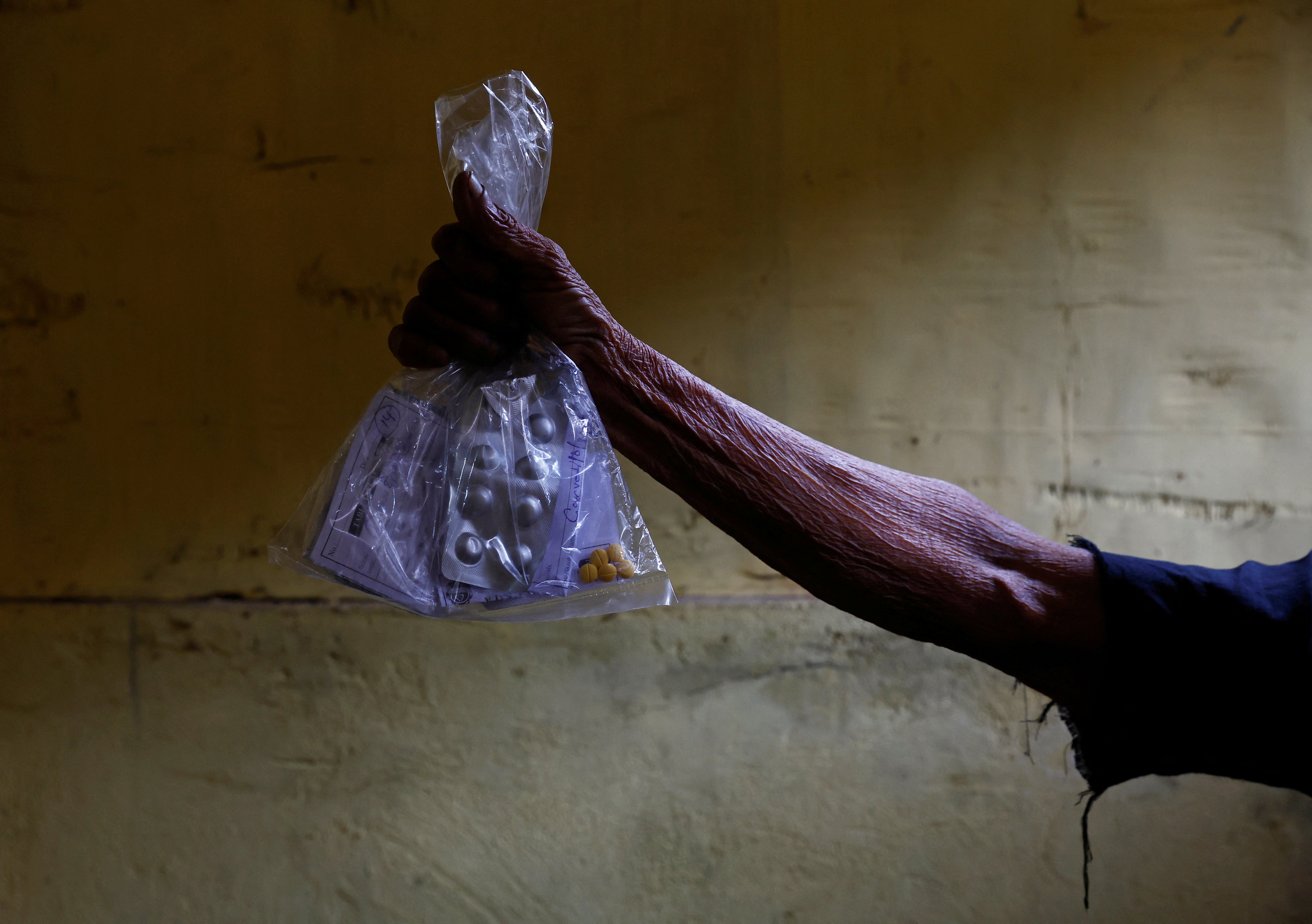Last handful of fish: Crisis pushes more Sri Lankans into poverty
Rampant inflation and shortages of essentials have driven many Sri Lankans into poverty

Your support helps us to tell the story
From reproductive rights to climate change to Big Tech, The Independent is on the ground when the story is developing. Whether it's investigating the financials of Elon Musk's pro-Trump PAC or producing our latest documentary, 'The A Word', which shines a light on the American women fighting for reproductive rights, we know how important it is to parse out the facts from the messaging.
At such a critical moment in US history, we need reporters on the ground. Your donation allows us to keep sending journalists to speak to both sides of the story.
The Independent is trusted by Americans across the entire political spectrum. And unlike many other quality news outlets, we choose not to lock Americans out of our reporting and analysis with paywalls. We believe quality journalism should be available to everyone, paid for by those who can afford it.
Your support makes all the difference.In her outstretched palms, 49-year-old Nilanthi Gunasekera holds her family’s last remaining handful of dried fish – a reminder of Sri Lanka’s worst economic crisis in decades.
She is just one of the millions of Sri Lankans battling a calamitous decline in living standards as they find themselves forced to skip meals, ration medicines and turn to firewood in place of cooking gas.
“Now fish is out of the reach of our family, and so is meat,” Gunasekera said, grasping the shards of fish. “For two weeks we couldn’t afford any meat or fish. This is our last protein.”

Hit hard by the Covid-19 pandemic, rising oil prices and economic mismanagement under previous governments, the island nation is in the throes of its starkest crisis since independence from Britain in 1948.
Rampant inflation, snaking fuel queues and shortages of essentials such as food and medicine have driven many Sri Lankans into poverty, while months of street protests ousted the previous president, Gotabaya Rajapaksa, in July.
More than a quarter of the population of 22 million is now struggling to secure adequate, nutritious food, the United Nations says.


“We really can’t afford to buy a gas cylinder or a cooker,” Gunasekera said, after thieves broke into her home and stole the family’s cooker and gas cylinder a few months ago. “So now we are forced to cook with firewood.”
As desperation grows, the government of president Ranil Wickremesinghe is seeking a multibillion-dollar bailout in talks with the International Monetary Fund and is tapping major allies, from India and Japan to the United States.

But major financial assistance is still months away, making tough austerity measures likely, so few Sri Lankans will see conditions improve soon.
“Now I bathe at a public well more often in order to save money,” said auto rickshaw driver Sivaraja Sanjeewan, 31, adding that the rising cost of food made it very tough for him to pay water and electricity bills.


Shortages persist
As depleted reserves have dried up supplies of petrol, diesel and gas, lengthy fuel queues, sometimes persisting for days, have become a daily feature this year.
The shortages have brought a boom in demand for firewood.
Krishan Darshana said he had joined his father in breaking up logs to sell as kindling after getting laid off from a job in construction during the crisis.
“It’s very hard work,” said the 25-year-old, who now makes do with a cup of tea and a couple of biscuits as the day’s only meal. “But what else can I do when there are no jobs for us?”


Times are also tough for those with health problems.
“Government hospitals have run out of medicine, so they ask us to buy from pharmacies – but we don’t have any money,” said Krishan’s mother, 60-year-old Gamage Rupawathi.
She suffers from asthma, excess cholesterol and arthritis, but now finds she has just three days of drugs left.
“After this is over, what do I do?” she asked tearfully, gesturing to an inhaler she uses twice a day to help her breathe.
Children suffer
With education already disrupted by the pandemic, children were among the worst hit by the economic crisis that followed as parents scrambled for supplies and authorities worried about growing risks of malnutrition.
“Our main concern is the education of our children,” said Gunasekera. “But we are unable to buy even exercise books.”
Her husband has to beg his employers for the money to buy them, she added.


Some parents find it hard to scrape together the fares for children’s trips to school, while others cannot afford to buy them even simple treats, such as ice cream or sweets.
Oshada Fernando played with a homemade kite his uncle fashioned from bamboo scraps and shopping bags. His parents were unable to afford a gift for his birthday last month.
“I was wishing for a racing car,” said the 11-year-old. “I hope at least for my next birthday I get this as a present.”
Reuters
Join our commenting forum
Join thought-provoking conversations, follow other Independent readers and see their replies
Comments